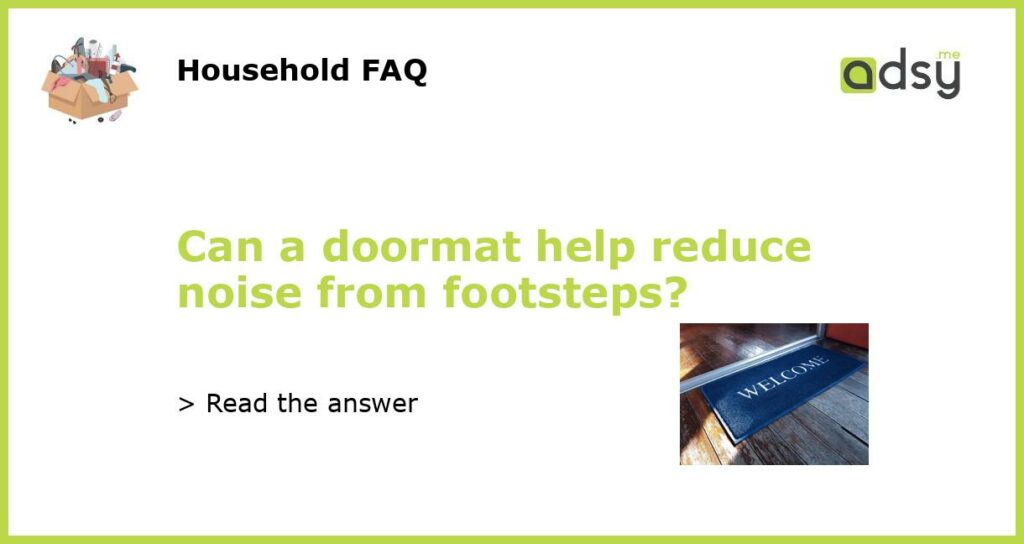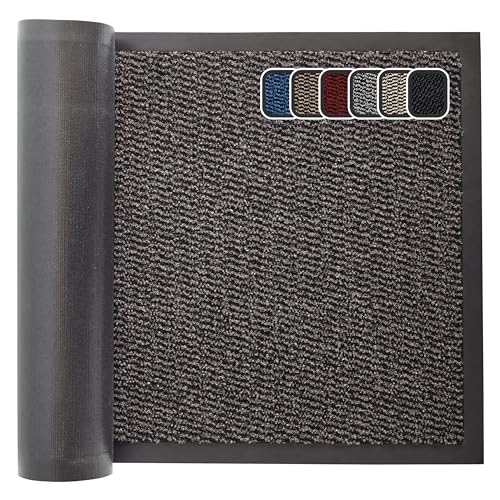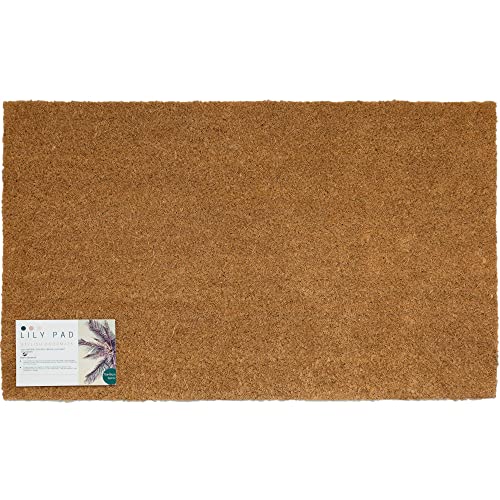Yes, a doormat can help reduce noise from footsteps
Noise from footsteps can be a common problem, especially in homes with hardwood or tile floors. This can be particularly disruptive, especially if you live in an apartment or have neighbors living below you. One way to help reduce noise from footsteps is by using a doormat. While a doormat may seem like a small and insignificant solution, it can actually make a big difference in reducing noise and creating a more comfortable living environment.
Why doormats are effective at reducing noise
Doormats are effective at reducing noise from footsteps for several reasons. First, they provide an extra layer of cushioning between your feet and the floor. This cushioning helps to absorb the impact of your footsteps and can significantly reduce the amount of noise generated. Second, doormats can help to dampen vibrations caused by footsteps. When you walk, the impact creates vibrations that can travel through the floor and walls, creating noise. A thick doormat can help to absorb these vibrations, preventing them from traveling and reducing the overall noise level in your home.
Choosing the right doormat for noise reduction
Not all doormats are created equal when it comes to noise reduction. To effectively reduce noise from footsteps, it’s important to choose a doormat that is thick and made from a material that provides good cushioning. Look for doormats that are made from materials like rubber, memory foam, or natural fibers like coir or jute. These materials are excellent at absorbing impact and reducing noise. Additionally, look for doormats that have a non-slip backing, as this will help to keep the doormat in place and prevent it from sliding around when you walk on it.
Other ways to reduce noise from footsteps
While using a doormat can be an effective way to reduce noise from footsteps, there are also other steps you can take to further minimize noise in your home. Here are a few additional tips:
- Use rugs and carpets: Just like doormats, rugs and carpets can help to absorb impact and reduce noise. Consider adding rugs or carpets to high-traffic areas, such as hallways or living rooms.
- Apply acoustic sealant: Acoustic sealant is a type of caulk that is specifically designed to reduce noise. Applying it around baseboards, windows, and doors can help to seal gaps and prevent noise from traveling.
- Add wall coverings: Sound-absorbing wall coverings, such as acoustic panels or wallpapers, can help to reduce noise that travels through walls. These can be particularly useful in apartment buildings or shared living spaces.
- Wear soft-soled shoes: If you tend to wear shoes indoors, choosing soft-soled shoes can help to reduce noise. Hard-soled shoes can create more impact and noise when walking on hard surfaces.
- Use furniture pads: Adding furniture pads to the bottoms of chairs and tables can help to prevent noise and vibrations when they are moved.
The benefits of reducing noise from footsteps
Reducing noise from footsteps can offer several benefits in addition to creating a more peaceful and comfortable living environment. Noise reduction can improve sleep quality, particularly for those who are sensitive to sound. It can also help to create a more harmonious living environment in shared spaces, such as apartments or dormitories. Additionally, reducing noise from footsteps can help to protect your floors from damage. The repetitive impact of footsteps can wear down hardwood or tile floors over time, leading to scratches and other damage. By reducing noise, you can also extend the life of your flooring.
In conclusion, a doormat can be a simple and effective solution for reducing noise from footsteps. By providing an additional layer of cushioning and absorbing vibrations, doormats can significantly reduce the noise generated by walking on hard floors. When choosing a doormat, opt for one that is thick and made from materials like rubber or memory foam. Additionally, consider implementing other noise reduction measures, such as using rugs or carpets, applying acoustic sealant, and wearing soft-soled shoes. By taking these steps, you can create a quieter and more comfortable living environment.






